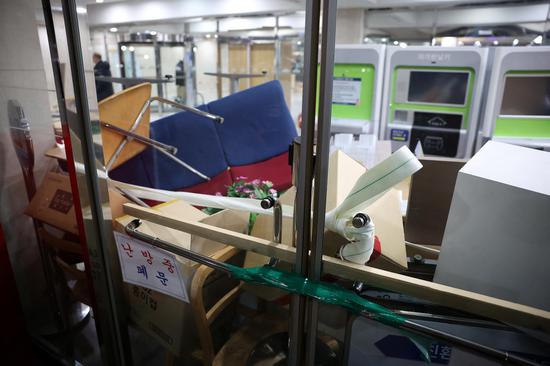Households have to pay more for goods from China and other partners: Experts
Families in the United States could soon have to pay thousands of dollars more for furniture, clothes, cars, electronics and household items imported from China and other key trading partners if U.S. President-elect Donald Trump follows through with a new round of tariffs, according to economists and trade organizations.
The tariffs could cost a typical family an extra $1,700 to $2,350 per year, according to the nonprofit American Action Forum. Household budgets already have been strained by persistent inflation.
Trump has floated tariffs of 10 percent to 60 percent on Chinese imports. In November, he wrote on his Truth Social media site that he plans to impose a 25 percent tariff on products imported from Mexico and Canada, two of the U.S.' top three trading partners, unless they tightened their borders with the U.S..
Mary Lovely, professor emeritus of economics at the Maxwell School of Citizenship and Public Affairs of Syracuse University and senior fellow at the Peterson Institute for International Economics, or PIIE, in Washington, DC, told China Daily that a household with a median U.S. income could pay " $1,700 more each year in import taxes".
Trump had said the tariffs would benefit U.S. consumers at a Wisconsin campaign rally in September.
"I'm not raising your taxes. I'm raising China's and all of these countries in Asia and all over the world, including the European Union, by the way, which is one of the most egregious," he said. "And they're going to have to pay a price now because we've been supporting them for a long time, and it's no longer sustainable."
However, in a recent interview that aired on NBC on Dec 8, Trump said he could not "guarantee" consumer prices wouldn't rise under his proposed tariffs.
The U.S. and China are key trading partners. In 2023, out of nearly $4 trillion in imported U.S. goods and services, $448 billion was from China, according to U.S. Census Bureau data.
Ed Frank, director of policy communications at the Consumer Technology Association, told China Daily that the organization's research shows that a universal tariff of 10 percent and a 60 percent flat tariff on all imports from China would cause major price increases for U.S. consumers.
The tariffs could mean a $799 iPhone 16 would cost $213 more. On cell phones, China has gone from having a market share of 63.59 percent in 2018 to 42.14 percent today — a decline of 33.73 percent, Forbes reported.
Trump has also threatened to impose 100 percent tariffs on BRICS nations Brazil, Russia, India, China, South Africa, Ethiopia, Egypt, Iran, and the United Arab Emirates if they don't conduct trade in the U.S. dollar.
Mexico is a top source of food imports, sending $9.9 billion worth of vegetables and $11 billion worth of fruit and juices to the U.S. in 2023.
In the furniture industry, total imports were $21.2 billion in 2023. China accounted for $9.4 billion, down 29.7 percent from the $13.3 billion in 2022, according to investment bank Mann, Armistead &Epperson.
Costs to go up
Several economists who have studied the impact of tariffs drew the same conclusion: The U.S. consumer will see the costs going up.
Those who will suffer the most will be "lower-income U.S. consumers", Thomas Fullerton, an economist and economics professor at the University of Texas at El Paso, told China Daily.
While tariffs were used by the U.S. at the beginning of its history as a source of government revenue, by the 20th century, the policy was dropped after the federal income tax went into effect.
Lovely and co-author Kimberly Clausing, economists from the PIIE, wrote that tariffs are "regressive" and an "antiquated" way of raising government revenue in their May study "Why Trump's Tariff Proposals Would Harm Working Americans".
They contended that only 2 percent of government revenue in high-income countries came from import duties.
Trump put $300 billion of tariffs on Chinese-made goods in his first administration, sparking a trade war and retaliatory tariffs.


















































 京公網(wǎng)安備 11010202009201號(hào)
京公網(wǎng)安備 11010202009201號(hào)